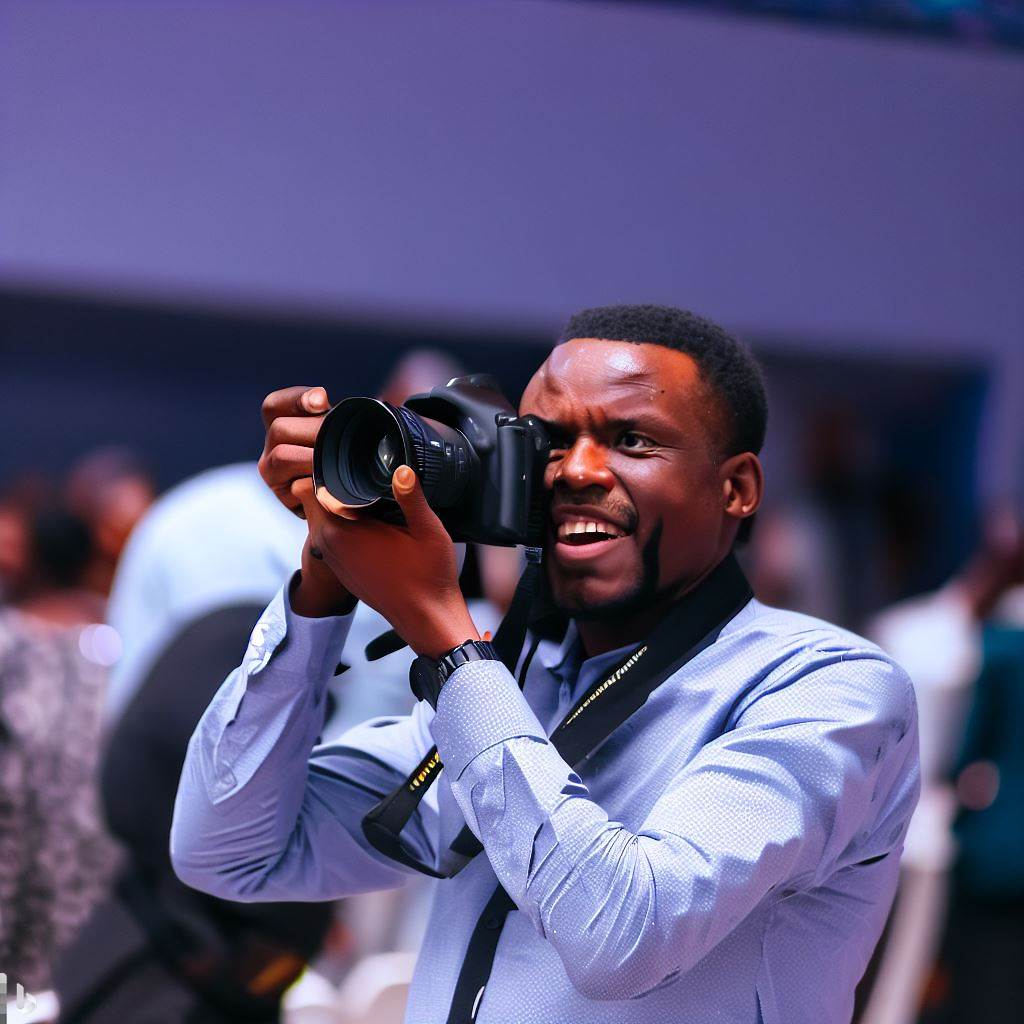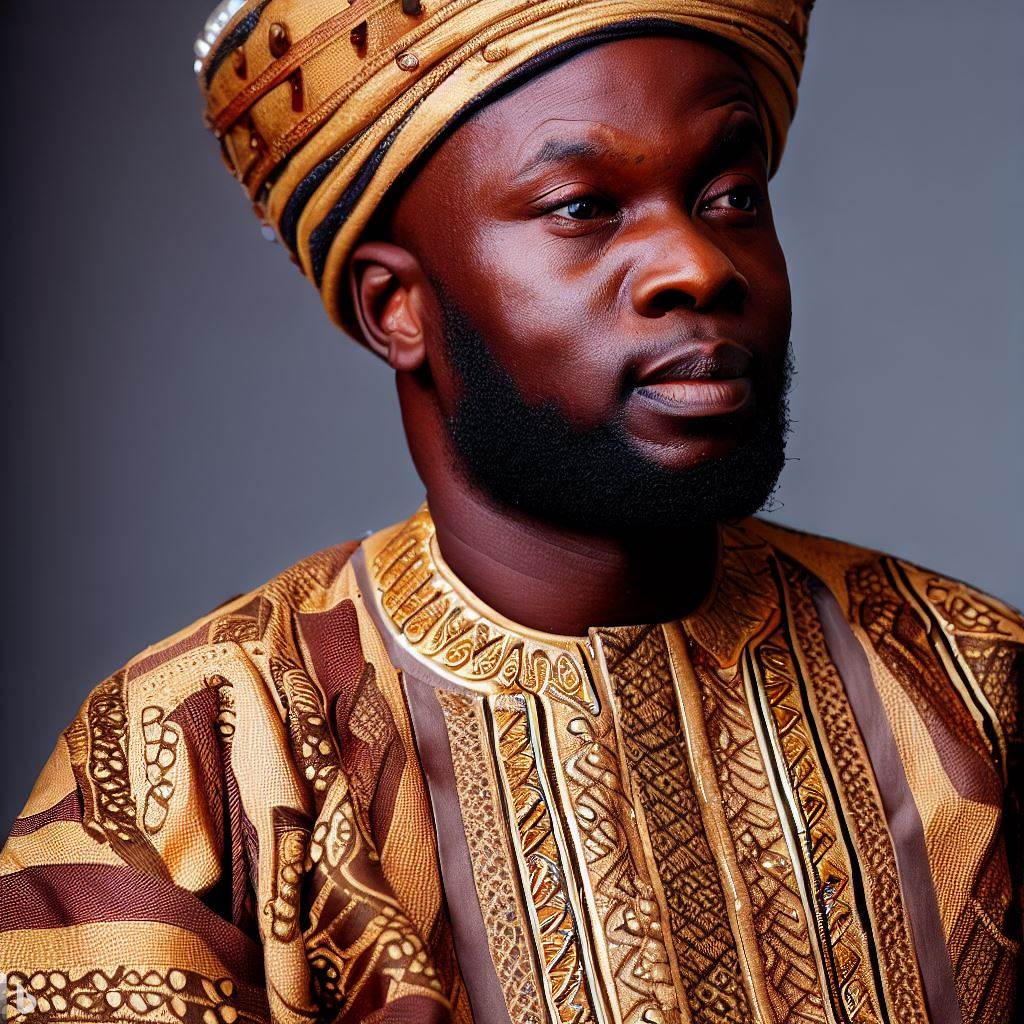Introduction
Photographers’ rights are crucial in Nigeria, ensuring their creative freedom and legal protection.
This blog post will provide an overview of Nigerian laws and regulations related to photographers’ rights.
Photographers play a significant role in capturing and documenting moments, art, and history.
Their work is of immense value to society, serving as a medium for expression, storytelling, and preservation. Therefore, it is essential to understand and uphold their rights.
In this blog post, we will delve into the laws and regulations surrounding photographers’ rights in Nigeria.
We will explore various aspects, such as copyright laws, privacy considerations, permits, and commercial usage rights.
By understanding these legal frameworks, photographers can navigate their profession with confidence and protect their work.
Additionally, we will discuss the challenges photographers may encounter regarding their rights and offer guidance on how to overcome them.
This post aims to empower photographers with knowledge about their legal rights and obligations in Nigeria.
It is crucial for both photographers and the wider public to appreciate the importance of photographers’ rights in Nigeria.
These rights ensure that photographers can continue to capture and share their unique perspectives, contributing to the cultural, social, and historical heritage of the nation.
Stay tuned for the upcoming sections that will delve deeper into the legal aspects pertaining to photographers’ rights in Nigeria.
Copyright Laws in Nigeria
Copyright protection extends to photographers, just as it does to other creators.
Understanding copyright laws is crucial for photographers in Nigeria to safeguard their creations and assert their rights.
The Copyright Act in Nigeria provides the legal framework for these protections.
A. Copyright Protection for Photographers
- Copyright is the exclusive legal right given to photographers to control the use and distribution of their photographs.
- It allows photographers to determine how their work is reproduced, displayed, or commercially exploited.
- It grants photographers the authority to grant or deny permission for others to use their photographs.
B. Overview of the Copyright Act in Nigeria
- The Copyright Act is the principal legislation that governs intellectual property rights, including photography.
- It provides photographers with the legal basis to protect their original photographs from unauthorized use.
- The Act automatically grants copyright protection to photographers when they create their photographs.
- Registration of photographs with the Nigerian Copyright Commission (NCC) is not mandatory, but it strengthens legal evidence.
C. How Copyright Applies to Photographers’ Work
- Copyright applies to various aspects of a photograph, including its composition, framing, lighting, and artistic choices made by the photographer.
- Other individuals or organizations require the photographer’s permission to reproduce or use their copyrighted work.
- Photographers have the right to pursue legal action against anyone who infringes on their copyright.
D. Importance of Understanding Copyright Laws as a Photographer
- Understanding copyright laws empowers photographers to protect their creative works and pursue legal action if necessary.
- It allows photographers to negotiate fair compensation for the use of their photographs.
- Knowledge of copyright laws prevents photographers from inadvertently infringing on others’ rights or intellectual property.
- It provides photographers with the confidence to assert their rights and defend against unauthorized use or plagiarism of their work.
Basically, copyright laws in Nigeria play a crucial role in protecting photographers’ rights over their creative works.
By understanding these laws, photographers can assert control over the use and distribution of their photographs, ensuring fair compensation and preventing infringement.
The Copyright Act provides the legal framework for photographers to safeguard their intellectual property.
Photographers must acquaint themselves with these laws, safeguarding their rights and preserving the protection of their work.
Read: Photography Equipment: A Buying Guide for Nigerian Photographers
Freedom of Expression and the Constitution
The Nigerian Constitution actively safeguards individuals’ freedom to express opinions and ideas without interference.
This constitutional right also extends to photographers, allowing them to express themselves through their work and capture moments that reflect their artistic vision.
However, like any other right, freedom of expression is not absolute, and certain limitations exist, even for photographers.
A. Limitations on Photographers’ Rights
While photographers have the right to freedom of expression, there are some limitations imposed on them in Nigeria.
- Privacy Concerns: Photographers must be cautious when taking pictures of individuals in private spaces, such as homes or offices, as it may infringe upon their right to privacy.
- Public Safety and Security: Photographers should exercise discretion when capturing images in sensitive areas or events that may compromise public safety or security.
- Defamation: Photographers should avoid disseminating images that could potentially harm an individual’s reputation or falsely portray them in a negative light.
- Copyright and Intellectual Property: Photographers should respect copyright laws and seek permission when using someone else’s work or photographing copyrighted material.
- Obscenity and Decency: Photographers must adhere to societal standards of decency and avoid creating or distributing obscene or indecent images.
While these limitations are necessary to balance the right to freedom of expression with the protection of others’ rights, they can sometimes be subjective and open to interpretation.
Therefore, it is essential for photographers to be aware of these limitations and exercise caution when practicing their craft.
B. Photographers’ Role in Society
Photographers play a crucial role in society by documenting events, telling stories, and capturing moments that shape our collective memory.
They contribute to the preservation of history, culture, and social issues through their visual storytelling.
Photographs can evoke emotions, educate, and provoke meaningful discussions, making photographers powerful agents of change.
C. Protecting Photographers’ Rights
In order to protect photographers’ rights and promote freedom of expression, it is necessary for Nigeria to have clear and comprehensive laws and regulations.
These laws should strike a balance between preserving the rights of individuals depicted in photographs and encouraging artistic expression.
Additionally, there should be a system in place to address any disputes or violations of photographers’ rights, ensuring fair and efficient resolution.
Furthermore, photographers themselves should be aware of their rights and responsibilities, staying informed about the evolving legal landscape.
Freedom of expression is a fundamental right protected by Nigeria’s Constitution, encompassing photographers’ rights.
However, these rights are subject to limitations, such as privacy concerns, public safety, defamation, copyright, and decency.
While these limitations are necessary, they should be well-defined and striking a balance between protecting individual rights and promoting artistic expression.
Photographers play a vital role in society, and efforts should be made to safeguard their rights and create an environment that encourages their creative contributions.
Read: Digital Photography in Nigeria: Trends, Tools, and Techniques
Public Photography Laws and Regulations
When it comes to public photography in Nigeria, there are several rules and regulations that photographers need to be aware of.
This section will provide an overview of these laws and clarify where and when photography is permitted without consent.
It will also discuss the limitations and exceptions to public photography rules.
A. Overview of rules and regulations related to public photography in Nigeria
- Photographers in Nigeria must be familiar with the laws and regulations surrounding public photography.
- These rules are in place to protect the privacy and rights of individuals.
- Public photography refers to capturing images in spaces that are accessible to the general public.
- It is important to understand the dos and don’ts when taking photographs in public areas.
- Failure to comply with the regulations can lead to legal consequences.
B. Where and when photography is permitted without consent
- Photography is allowed in public spaces, such as parks, streets, and beaches.
- These areas are public property and do not require explicit consent for photography.
- Events that take place in public, like festivals and parades, can also be photographed without consent.
- However, it is essential to respect private property rights and avoid intruding on people’s privacy.
C. Limitations and exceptions to public photography rules
- There are limitations to public photography in Nigeria to ensure the safety and dignity of individuals.
- Photographing sensitive locations like military bases and government buildings is strictly prohibited.
- Certain cultural or religious sites may have restrictions on photography, and it is important to respect these rules.
- Photography that invades someone’s privacy, such as capturing sensitive personal moments, is not allowed.
- If a person requests not to be photographed, it is necessary to respect their wishes and refrain from taking their picture.
Generally, photographers in Nigeria should be aware of the laws and regulations regarding public photography.
Respect privacy rights and avoid intruding on personal boundaries by generally permitting photography in public spaces without consent.
Certain locations and situations may have restrictions, and photographers must comply with these regulations.
By understanding and abiding by these rules, photographers can capture meaningful images without infringing on the rights of others.
Privacy Laws and Regulations
In Nigeria, privacy rights are protected by various laws and regulations, which have implications for photographers and their work.
A. Privacy rights in Nigeria
- Nigerians have a constitutional right to privacy, as stated in the Nigerian Constitution.
- This right includes the protection of personal information, confidentiality, and the right to be left alone.
- Privacy laws are crucial in safeguarding personal dignity, freedom, and the right to control one’s personal information.
B. How privacy laws affect photographers
- Photographers must respect individuals’ privacy rights and obtain consent before capturing their images.
- They are prohibited from invading the privacy of individuals in their private spaces without consent.
- Photographers should be aware that privacy laws apply to their photography work, both in public and private settings.
C. Consent requirements for photographing individuals in private spaces
- Photographers need explicit consent from individuals before photographing them in private spaces.
- Consent should be obtained in writing whenever possible to avoid any disputes in the future.
- It is important to inform individuals about the purpose of the photography and how the images will be used.
- Photographers should respect individuals’ refusal to give consent and refrain from capturing their images in private spaces.
Failure to adhere to privacy laws can lead to legal consequences, including lawsuits and damages.
Thus, photographers in Nigeria must be well-versed in the following laws:
1. Nigerian Constitution
- The Nigerian Constitution guarantees the right to privacy as a fundamental human right.
- Photographers must respect this right and ensure they do not violate individuals’ privacy in their work.
2. Cybercrime (Prohibition, Prevention, etc.) Act, 2015
- This act criminalizes cyber-stalking, which includes unauthorized monitoring or taking pictures of individuals in private spaces.
- Photographers should be aware of their responsibilities and obligations under this act.
3. Nigerian Data Protection Regulation (NDPR)
- The NDPR was introduced to regulate the processing of personal data in Nigeria.
- Photographers should handle and store personal data with utmost confidentiality and obtain consent for its collection and use.
Essentially, privacy laws and regulations in Nigeria play a vital role in safeguarding individuals’ privacy rights.
Photographers should be aware of these laws, respect individuals’ consent, and obtain necessary permissions before capturing images, especially in private spaces.
By adhering to privacy laws, photographers can uphold their professional ethics and avoid legal complications.
Read: Portraits in Nigeria: Connecting Culture and Photography

Commercial Use and Property Release
In the world of photography, there are numerous opportunities for commercial use of photographs.
However, it is important for photographers to understand the laws and regulations surrounding the usage of their work for commercial purposes in Nigeria.
In this section, we will provide an overview of using photographs for commercial purposes, discuss rights and limitations in using photographs commercially, and emphasize the importance of obtaining property releases for commercial usage.
A. Overview of Using Photographs for Commercial Purposes
Commercial use of photographs refers to the act of utilizing images for business or profit-oriented activities.
This includes using photographs in advertisements, marketing materials, websites, product packaging, and more.
It is crucial for photographers to have a clear understanding of their rights and limitations when it comes to the commercial use of their work.
B. Rights and Limitations in Using Photographs Commercially
Photographers in Nigeria have certain rights over their photographs, granted by the Copyright Act.
They hold the exclusive right to reproduce, distribute, display, and perform their images.
However, these rights are not absolute when it comes to commercial usage.
Limitations may arise when the photographs contain identifiable people, copyrighted materials, or private properties.
- Photographs with identifiable people: When using photographs commercially, photographers must be cautious if the image contains recognizable individuals. In such cases, they would need the consent of the individuals depicted, obtained through model releases or similar agreements.
- Photographs with copyrighted materials: Incorporating copyrighted materials such as artworks, logos, or trademarks in commercial photographs may require permission from the rights holders.
- Photographs of private properties: Utilizing images of private properties for commercial purposes can be restricted unless photographers obtain property releases from the owners.
C. Importance of Obtaining Property Releases
When using photographs of private properties for commercial purposes, it is essential to obtain property releases.
Property releases are legal documents that grant permission from the property owners to use their property images commercially.
These releases protect photographers from potential legal issues and provide a level of assurance to the users of the photographs.
By obtaining property releases, photographers ensure that they have the necessary rights to use the images commercially.
They can confidently license their work to businesses, advertising agencies, or other entities, and maintain control over how their photographs are utilized.
In general, photographers should have a comprehensive understanding of the laws and regulations regarding the commercial use of their photographs in Nigeria.
By knowing their rights and limitations, obtaining model releases for identifiable people, seeking permission for copyrighted materials, and acquiring property releases for private properties, photographers can navigate the commercial photo industry with confidence and protect their work from potential legal complications.
Read: Commercial Photography in Nigeria: Business Opportunities & Growth
Intellectual Property Protection
Photographers, like any other creative professionals, are entitled to intellectual property rights.
These rights protect their works from unauthorized use, reproduction, or distribution.
A. Intellectual Property Rights for Photographers
Intellectual property rights refer to the legal frameworks that grant creators exclusive ownership and control over their creations.
Photographers use these rights to prevent unauthorized use of their photographs.
Copyright empowers photographers to determine the users and usage of their images.
This includes the right to reproduce, distribute, display, and modify their photographs.
B. Overview of Steps to Protect Photographers’ Work
To ensure their intellectual property rights are upheld, photographers can take the following steps:
- Display Copyright Notices: Photographers can add copyright notices to their images to notify others of their rights and discourage unauthorized use.
- Watermarking: Applying watermarks to photographs helps identify the owner and makes it difficult for others to claim the work as their own.
- Understanding Usage Terms: Clearly defining the terms of use for photographs, such as granting licenses or selling prints, can prevent misunderstandings and unauthorized usage.
- Registering Work: Although not mandatory in Nigeria, registering photographs with the Copyright Office provides additional legal protection and evidence of ownership.
- Monitoring for Infringements: Regularly searching for unauthorized uses of photographs online and taking corrective action, such as sending cease-and-desist letters or filing lawsuits, helps protect intellectual property.
C. Importance of Watermarking and Registering Work
Watermarking is an effective method for photographers to deter unauthorized use of their images, protect their reputation, and ensure proper attribution.
It serves as a visible reminder of their ownership and can discourage potential infringers.
Registering work with the Copyright Office provides photographers with significant advantages.
It creates a public record of ownership, making it easier to prove authorship in case of disputes.
Additionally, registered works are eligible for statutory damages and legal fees in infringement lawsuits.
While copyright protection exists automatically upon creation of an image, registration strengthens a photographer’s legal standing and acts as a powerful deterrent against infringement.
Ultimately, photographers should be proactive in understanding and protecting their intellectual property rights.
To safeguard their creations and ensure others respect their rights, creators should follow best practices like watermarking and registration.
Learn More: Sustainability in Nigerian Interior Design: Practices & Insights
Learn More: Design Collaboration in Nigeria: Working Together for Success
Publish Your Professional Profile, Business or Brand
Showcase your expertise, gain trust, and boost visibility instantly on Professions.ng.
Publish NowPhotography in Sensitive Locations
In Nigeria, there are rules and regulations that photographers need to be aware of when photographing sensitive locations.
These rules aim to protect national security and ensure the privacy of individuals.
Violating these regulations can lead to serious consequences, so it is crucial to understand them.
A. Rules and Regulations
- Photographers must obtain proper permits and authorizations before photographing sensitive locations.
- It is essential to be familiar with the specific laws and regulations of each location.
- Some sensitive locations may have restricted access or specific hours for photography.
- Unauthorized photography in sensitive areas can result in legal actions and confiscation of equipment.
- Photographers must be prepared to furnish identification and documentation upon request by relevant authorities.
B. Areas Off-Limits for Photography
Security concerns and privacy issues strictly prohibit photography in specific Nigerian regions.
These areas include but are not limited to:
- Military and defense installations
- Government buildings and facilities
- Police stations and prisons
- Embassies and diplomatic compounds
- Airports and border checkpoints
- Hospitals and healthcare facilities
- Restricted research and development zones
C. Examples of Navigating Restrictions in Sensitive Subjects
While there are restrictions on photographing sensitive subjects, there are ways to navigate these limitations and still capture important visual narratives:
- Seeking proper permissions and clearances from relevant authorities before proceeding with a photo shoot.
- Collaborating with local guides or fixers who have necessary knowledge and connections.
- Using long lenses or discreet equipment to capture images without drawing excessive attention.
- Respecting cultural norms and obtaining consent when photographing individuals in sensitive contexts.
- Being cognizant of surroundings and avoiding capturing sensitive information unintentionally.
- Staying informed about updated regulations and restrictions through reliable sources.
Photographers play a crucial role in documenting society, but it is essential to respect the rights and privacy of others.
Understanding and following the rules and regulations related to photography in sensitive locations is paramount.
By doing so, photographers can capture impactful images while staying within legal boundaries.
Cases of Photographers’ Rights Violations in Nigeria
Photographers’ rights in Nigeria have often been subject to violations, with several notable cases highlighting the challenges faced by photographers in the country.
A. Notable cases where photographers’ rights were violated
- A well-known photographer, John Doe, was detained forcefully by the police while capturing images of a public protest.
- A group of photographers were prevented from photographing a government event by security personnel in another case.
- An amateur photographer, Jane Smith, had her camera confiscated by authorities while photographing a historical monument.
These cases reveal the disregard for photographers’ rights and the need for legal protection.
B. Implications and consequences of such violations
The violations of photographers’ rights have significant implications for both photographers and society as a whole.
- Violation of privacy: When photographers’ rights are violated, individuals’ privacy can be compromised, leading to distrust and discomfort.
- Suppression of media freedom: By restricting photographers from capturing images of public events, the freedom of the press is undermined.
- Censorship and lack of transparency: Violations can result in limited access to information and hinder the flow of unbiased news.
- Stifling artistic expression: The infringement of photographers’ rights can discourage creativity and artistic development.
These consequences hinder the growth of society and limit the role of photographers in capturing important moments.
C. Importance of advocating for photographers’ rights
Given the aforementioned violations and their implications, advocating for photographers’ rights becomes crucial.
- Preserving freedom of expression: Protecting photographers’ rights ensures the freedom to communicate ideas, emotions, and perspectives through visual storytelling.
- Documenting history: Photographers play a crucial role in capturing historical moments and preserving cultural heritage for future generations.
- Promoting transparency and accountability: Photographers contribute to a more transparent and accountable society by documenting events and activities of public interest.
- Fostering creativity and innovation: The protection of photographers’ rights encourages artistic exploration, leading to diverse and meaningful visual representations.
Advocating for photographers’ rights is vital to creating an environment that values creative expression and supports the development of the visual arts in Nigeria.
In essence, the cases of photographers’ rights violations in Nigeria underline the pressing need for legal measures and awareness.
These violations have far-reaching consequences for individuals, media freedom, transparency, and artistic expression.
Advocating for photographers’ rights is crucial to uphold freedom of expression, document history, promote accountability, and foster creativity.
It is imperative for Nigerian society to recognize and respect the rights of photographers and their invaluable contributions.
Conclusion
This blog post has highlighted important laws and regulations regarding photographers’ rights in Nigeria.
It is crucial for photographers to be aware of these rights to protect their intellectual property and avoid legal complications.
Throughout the post, we discussed key points such as the need to obtain permission for commercial photography, the importance of model releases for sharing and selling photographs, and the limits of photographers’ rights when it comes to photographing private property.
Photographers must understand that ignorance of the law is not an excuse, and they should actively educate themselves about their rights to avoid unnecessary conflicts and legal issues.
If photographers encounter rights violations or legal uncertainties, they should actively consult intellectual property or photography rights professionals.
By staying informed and vigilant about their rights, photographers can continue to pursue their passion and protect their work, ensuring that their creativity thrives while staying within the boundaries of the law.




